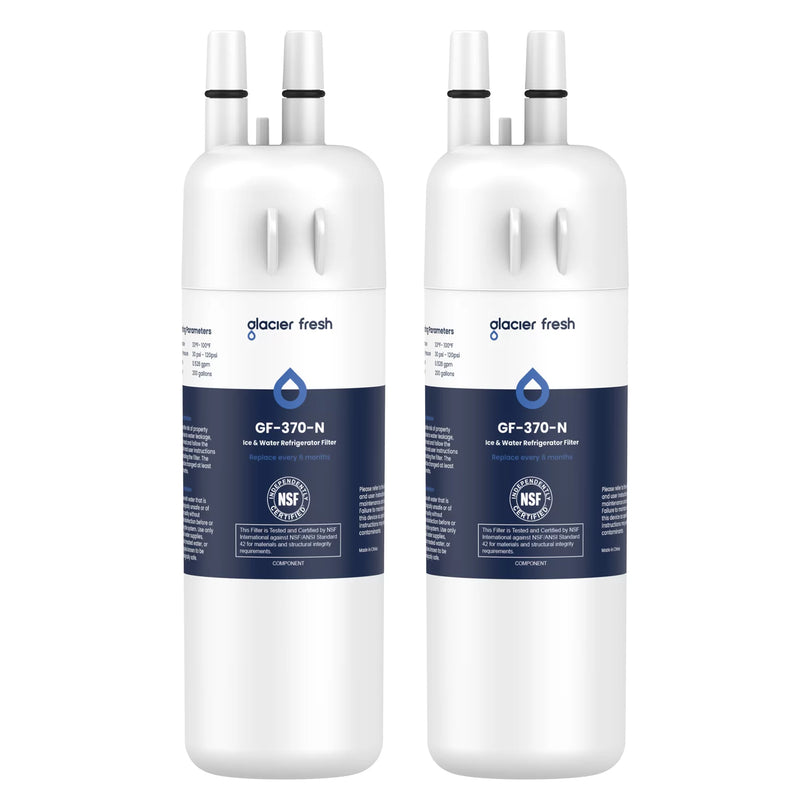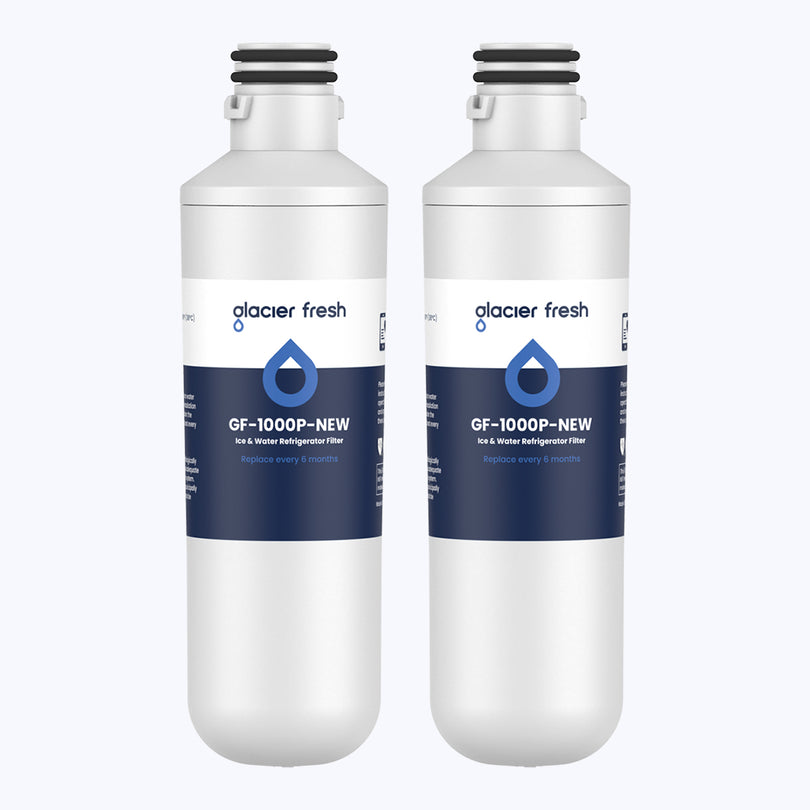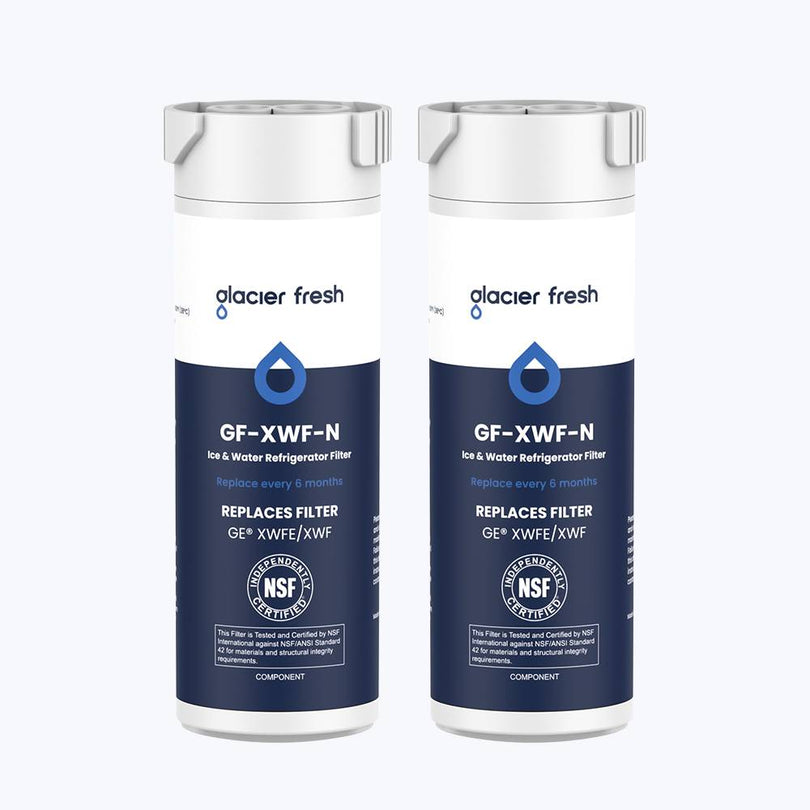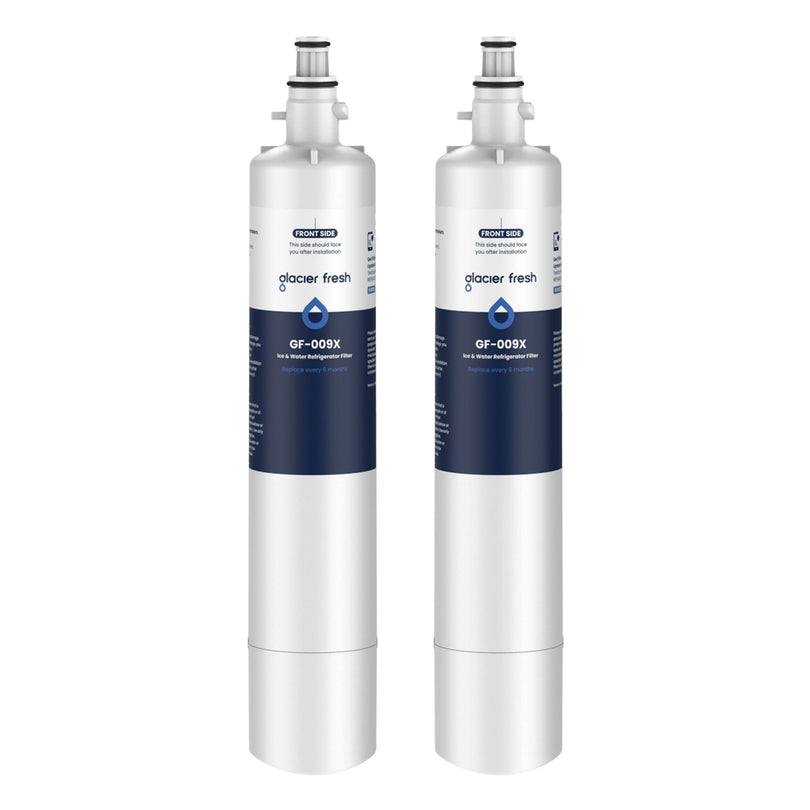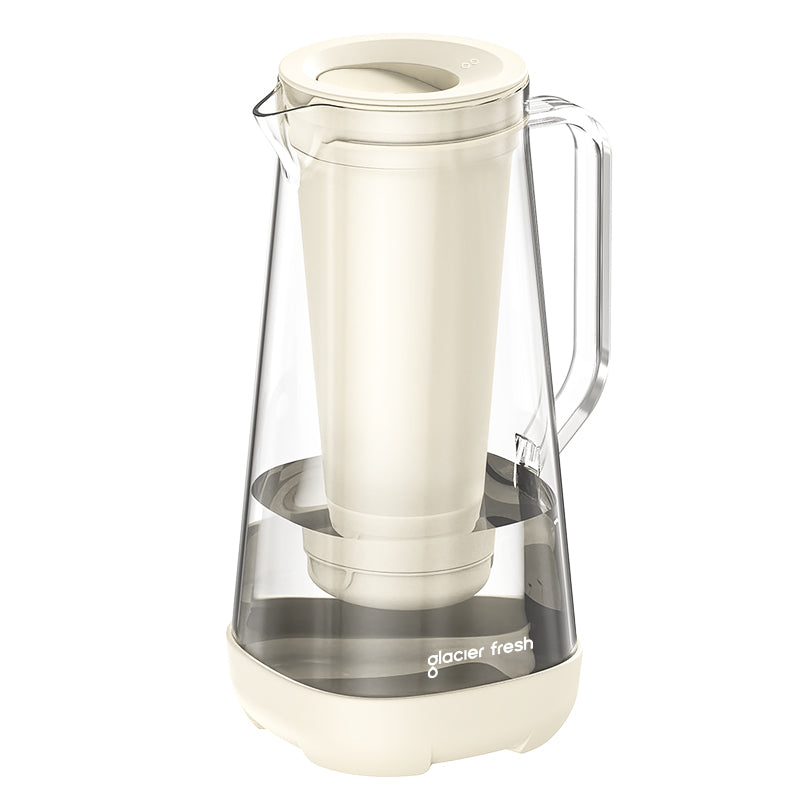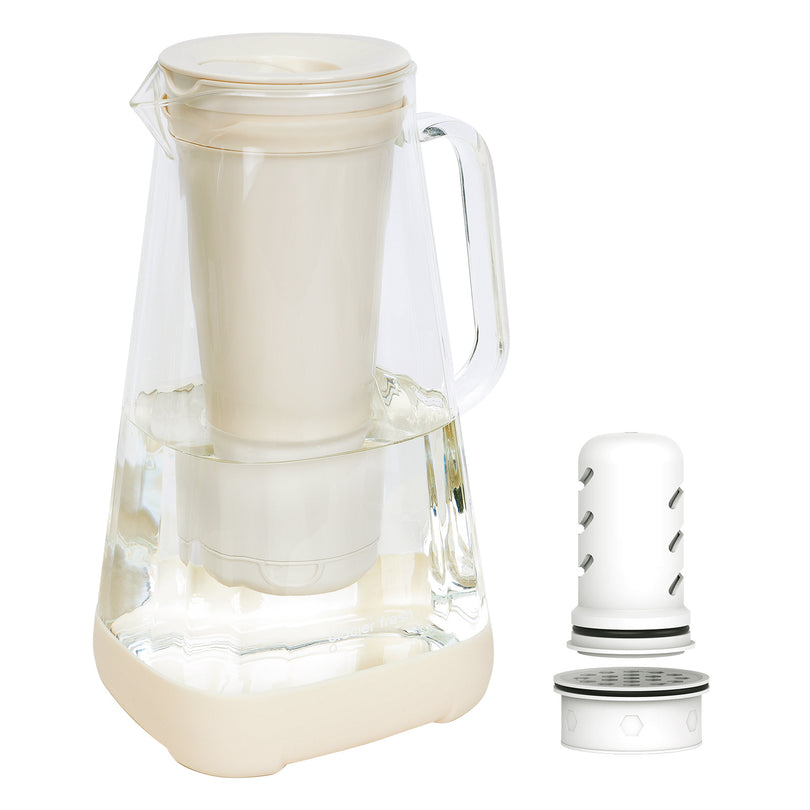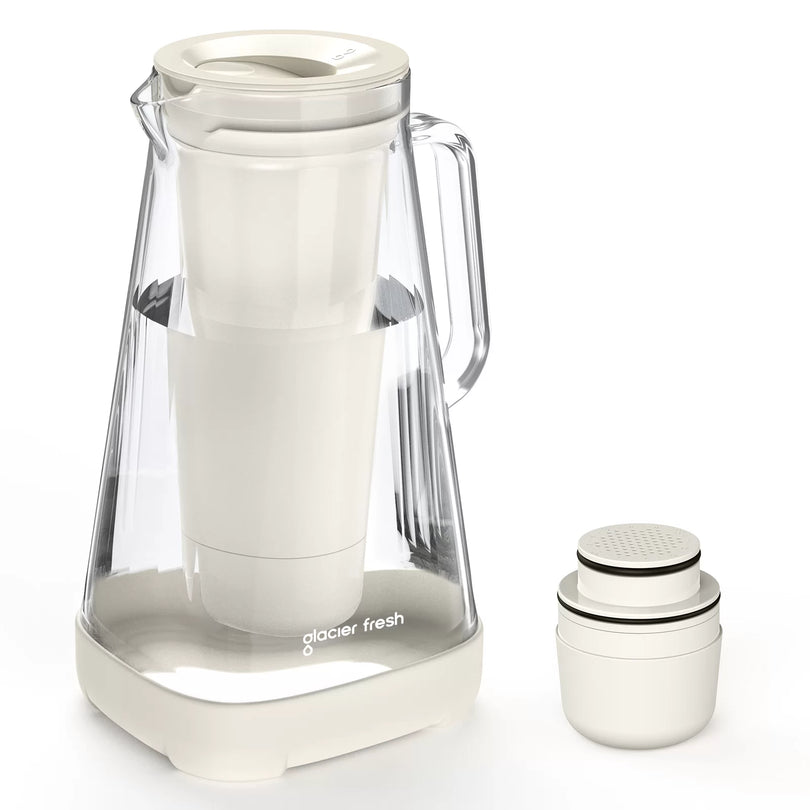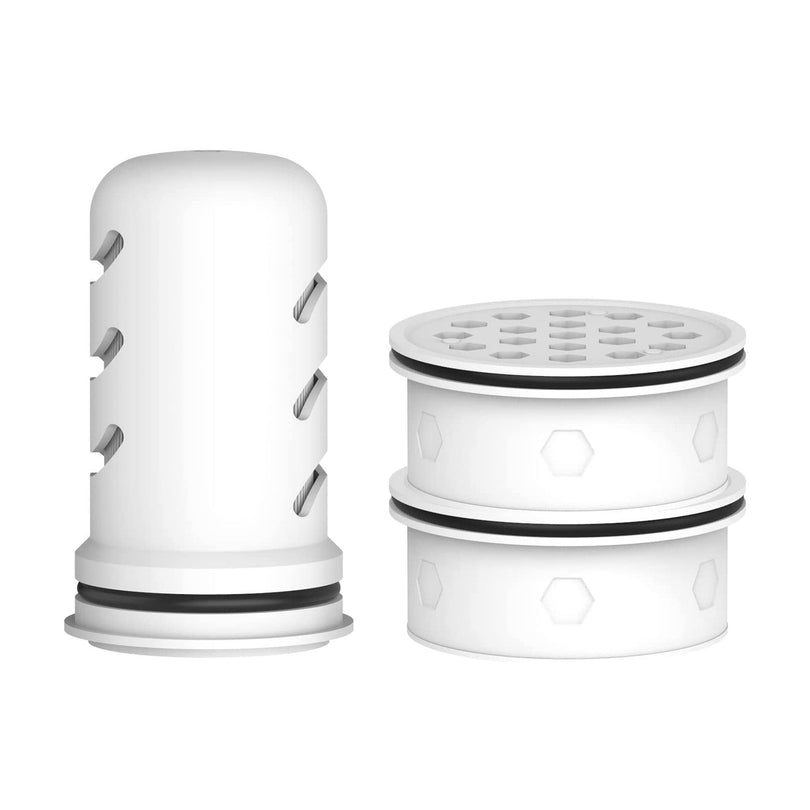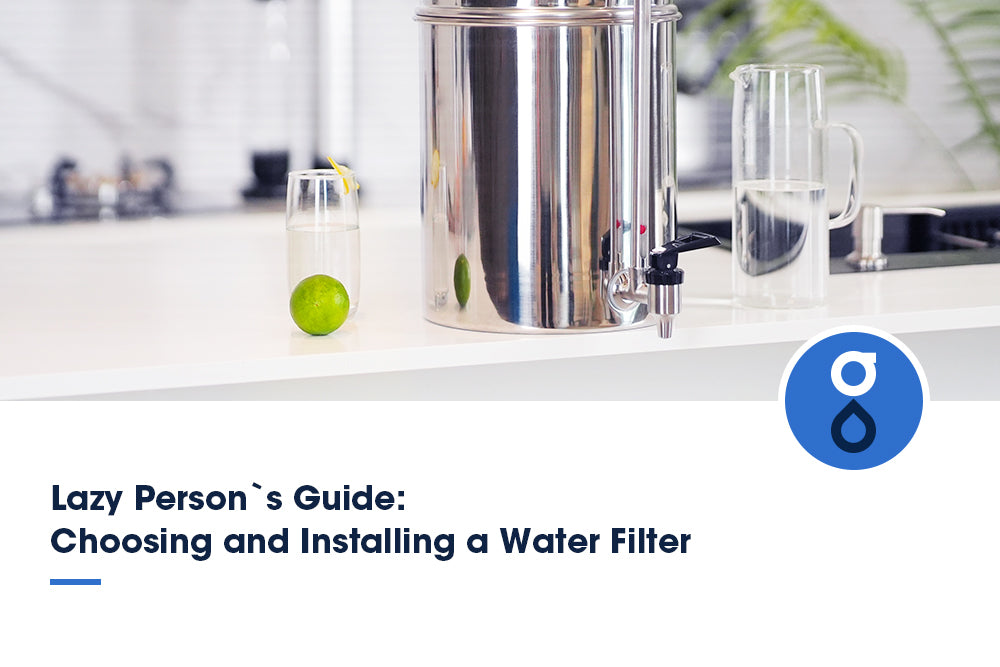Table of Contents:
Was ist die NSF-Filterzertifizierung?
Warum ist die NSF-Filterzertifizierung wichtig?
Vorteile von NSF-zertifizierten Wasserfiltern
Standards der NSF-Zertifizierung für Wasserfilter
Wie überprüfen Sie, ob ein Wasserfilter NSF-zertifiziert ist?
Glacier Fresh: Beste NSF-zertifizierte Wasserfilter
FAQs
Abschluss
Sie suchen einen Wasserfilter, sind aber von der großen Auswahl überfordert? Dann sind Sie hier richtig! Dieser Artikel erklärt Ihnen die Bedeutung der NSF-Zertifizierung für Wasserfilter. Erfahren Sie, warum diese Zertifizierung wichtig ist, welche Vorteile NSF-zertifizierte Filter bieten und wie Sie die NSF-Zertifizierung eines Filters überprüfen. Mit Glacier Fresh als Ihrer ersten Wahl für NSF-zertifizierte Wasserfilter können Sie sicher sein, eine kluge und sichere Investition in sauberes und gesundes Wasser zu tätigen.
Was ist die NSF-Filterzertifizierung?

Die NSF-Zertifizierung ist ein Verfahren, bei dem Wasserfilter getestet und bewertet werden, um festzustellen, ob sie die spezifischen Anforderungen der National Sanitation Foundation (NSF) erfüllen. Die Bedeutung dieser Zertifizierung liegt darin, dass sie einen unabhängigen Nachweis liefert, dass der Wasserfilter gründlich getestet wurde und in der Lage ist, Verunreinigungen wie Chlor , Blei und Bakterien aus Ihrem Trinkwasser effektiv zu entfernen.
Wasserfilterhersteller müssen sich einem strengen Testverfahren unterziehen, um die NSF-Zertifizierung zu erhalten. Dabei werden die Fähigkeit des Filters, Verunreinigungen zu entfernen, seine strukturelle Integrität und die Einhaltung von Sicherheitsstandards bewertet. Erst wenn alle Anforderungen der NSF erfüllt sind, kann ein Wasserfilter die begehrte Zertifizierung erhalten.
Warum ist die NSF-Filterzertifizierung wichtig?
Die Bedeutung der NSF-Zertifizierung liegt darin, dass sie den Verbrauchern die Gewissheit gibt, dass der von ihnen gekaufte Wasserfilter die erforderlichen Sicherheits- und Leistungsstandards erfüllt.
Mit der NSF-Zertifizierung demonstrieren Hersteller ihr Engagement für die Herstellung hochwertiger Wasserfilter, die von unabhängiger Seite gründlich getestet und geprüft wurden. Diese Zertifizierung stellt sicher, dass der Filter Schadstoffe wie Blei, Chlor und Bakterien effektiv reduziert und die spezifischen Angaben des Herstellers erfüllt.
Die Bedeutung der NSF-Zertifizierung zeigt sich in ihrer breiten Anerkennung und Akzeptanz bei Aufsichtsbehörden, Gesundheitsbehörden und Verbrauchern weltweit. Diese Zertifizierung gilt als Goldstandard in der Branche, und viele Regierungsbehörden verlangen die NSF-Zertifizierung als Voraussetzung für den Verkauf oder die Verwendung von Wasserfiltern in öffentlichen Einrichtungen.
Darüber hinaus gibt die NSF-Zertifizierung den Verbrauchern die Gewissheit, dass der von ihnen gekaufte Filter strengen Tests unterzogen wurde und den höchsten Qualitäts- und Leistungsstandards entspricht.
Die Bedeutung der NSF-Zertifizierung zeigt sich in ihrer Rolle beim Schutz der öffentlichen Gesundheit und der Sicherheit unseres Trinkwassers. Angesichts der wachsenden Besorgnis über Wasserverschmutzung und der damit verbundenen potenziellen Gesundheitsrisiken gibt die NSF-Zertifizierung den Verbrauchern die Gewissheit, dass der von ihnen gewählte Wasserfilter schädliche Verunreinigungen wirksam entfernt und sauberes, sicheres Trinkwasser liefert.
Vorteile von NSF-zertifizierten Wasserfiltern
Verbesserte Wasserqualität

Mit NSF-zertifizierten Wasserfiltern stellen Sie sicher, dass Ihr Wasser frei von schädlichen Verunreinigungen ist. Diese Filter werden strengen Tests unterzogen und erfüllen die strengen Standards der National Sanitation Foundation (NSF). Dank der NSF-Zertifizierung können Sie darauf vertrauen, dass Ihre Wasserfilter Verunreinigungen wie Chlor, Blei und Bakterien effektiv entfernen. Das bedeutet saubereres und sichereres Wasser für Sie und Ihre Familie.
Entfernung schädlicher Verunreinigungen
Mit NSF-zertifizierten Wasserfiltern können Sie schädliche Verunreinigungen effektiv aus Ihrem Trinkwasser entfernen. Diese Filter bekämpfen gezielt Schadstoffe wie Bakterien, Blei, Chlor und Pestizide und sorgen so für sauberes und sicheres Trinkwasser. Die NSF-Zertifizierung garantiert, dass der Wasserfilter strenge Standards zur effektiven Entfernung dieser Schadstoffe erfüllt. So können Sie beruhigt sein, denn Ihr Filter wurde gründlich getestet und funktioniert nachweislich wie versprochen.
Verbesserter Geschmack und Geruch
Durch das Herausfiltern von Chlor, Bakterien und anderen Schadstoffen verbessern NSF-zertifizierte Filter die Gesamtqualität Ihres Trinkwassers. Das Ergebnis ist Wasser, das besser schmeckt und frischer und sauberer riecht. Egal, ob Sie Wasser direkt aus dem Wasserhahn trinken oder zum Kochen verwenden, der verbesserte Geschmack und Geruch der NSF-zertifizierten Filter sorgt für höchste Wasserqualität.
Schutz vor durch Wasser übertragenen Krankheiten
Sorgen Sie für Ihre Sicherheit, indem Sie NSF-zertifizierte Wasserfilter zum Schutz vor durch Wasser übertragenen Krankheiten verwenden. Wasserbedingte Krankheiten werden durch verschiedene Bakterien, Viren und Parasiten verursacht, die Trinkwasserquellen verunreinigen.
Diese Verunreinigungen können zu ernsthaften Gesundheitsproblemen wie Durchfall, Erbrechen und sogar lebensbedrohlichen Zuständen führen.
Kostengünstige Lösung
Durch den regelmäßigen Einsatz von NSF-zertifizierten Wasserfiltern können Sie deutlich Kosten sparen. Diese Filter sorgen kostengünstig für sauberes und sicheres Trinkwasser. Durch die Entfernung von Verunreinigungen wie Chlor, Blei und Bakterien verbessern NSF-zertifizierte Filter nicht nur Geschmack und Geruch Ihres Wassers, sondern schützen auch Ihre Gesundheit. Mit diesen Filtern müssen Sie nicht ständig Wasser in Flaschen kaufen oder auf teure Wasserlieferdienste angewiesen sein. Darüber hinaus haben NSF-zertifizierte Filter eine längere Lebensdauer als andere Filter, sodass Sie sie seltener austauschen müssen, was Ihnen langfristig Geld spart.
Standards der NSF-Zertifizierung für Wasserfilter
Wenn es um die NSF-Zertifizierung für Wasserfilter geht, gibt es verschiedene Arten von Standards, die Sie beachten sollten.
NSF 42

NSF 42 wurde speziell für die Zertifizierung von Wasserfiltern entwickelt, die Geschmack und Geruch von Trinkwasser verbessern. Dieser Zertifizierungsstandard umfasst die Leistung der Filtersystemkomponenten und der Filter bzw. Filterkartuschen selbst. Er legt die Mindestanforderungen an Filtersysteme zur Trinkwasseraufbereitung zur Reduzierung bestimmter ästhetischer (Geschmack und Geruch) Verunreinigungen fest. Zu diesen nicht gesundheitsrelevanten Schadstoffreduzierungsansprüchen gehören die Reduzierung von Chlor und Partikeln. Die gängigste Technologie, die in Standard 42 behandelt wird, ist die Aktivkohlefiltration.
NSF 53
NSF 53 ist ein Zertifizierungsverfahren, das die Wirksamkeit von Wasserfiltern bei der Entfernung bestimmter Schadstoffe sicherstellt. Es legt die Mindestleistungsanforderungen an Trinkwasserfilter-/Aufbereitungssysteme zur Reduzierung gesundheitsrelevanter Schadstoffe wie Blei, Zysten, flüchtige organische Verbindungen usw. fest. Die gängigste Technologie, die von Standard 53 abgedeckt wird, ist die Aktivkohlefiltration. Einige Produkte fallen unter die Standards 42 und 53, da sie ästhetische und gesundheitliche Vorteile vereinen.
NSF 58
NSF 58 konzentriert sich speziell auf Umkehrosmoseanlagen (RO) und stellt sicher, dass diese die erforderlichen Leistungs- und Sicherheitskriterien erfüllen. Diese Zertifizierung legt die Mindestanforderungen für die Zertifizierung von Point-of-Use-Umkehrosmose-Filtersystemen (POU) fest. Der Standard umfasst:
- Verwendete Materialien.
- Strukturelle Integrität und Sicherheit.
- Produktliteratur.
- Reduzierung der Gesamtmenge gelöster Feststoffe (TDS).
- Zusätzliche Angaben zur Schadstoffreduzierung.
Zu diesen weiteren Schadstoffreduzierungsansprüchen können Zysten, Barium, Radium 226/228, Kupfer, sechswertiges und dreiwertiges Chrom, Arsen, Nitrat/Nitrit, Cadmium und Blei gehören.
NSF 55
NSF 55 legt die Mindestanforderungen für die Zertifizierung von UV-Lichtsystemen fest. Diese Norm beschreibt die spezifischen Tests, die Wasserfilter durchlaufen müssen, um ihre Leistung und Sicherheit zu gewährleisten. NSF 55-Konformität für UV-Desinfektionssysteme. Sie trägt dazu bei, dass der Wasserfilter Verunreinigungen effektiv entfernt und sauberes und sicheres Trinkwasser liefert.
NSF 44
NSF 44 ist eine spezielle Zertifizierung für private und gewerbliche Wasserenthärter und zugehörige Komponenten. Sie stellt sicher, dass die Filter strenge Standards hinsichtlich Leistung, struktureller Integrität und Materialien erfüllen. Die Erklärung zur NSF-Zertifizierung ist wichtig, da sie garantiert, dass der Wasserfilter gründlichen Tests unterzogen wurde und den Industriestandards zur Schadstoffreduzierung entspricht. Die Bedeutung der NSF-Zertifizierung liegt darin, dass sie Verbrauchern Vertrauen in die Wirksamkeit des Filters gibt. NSF-zertifizierte Filter bieten verschiedene Vorteile, wie z. B. eine verbesserte Wasserqualität, eine geringere Schadstoffbelastung sowie mehr Gesundheit und Sicherheit.
Wie überprüfen Sie, ob ein Wasserfilter NSF-zertifiziert ist?

Ob ein Wasserfilter NSF-zertifiziert ist, lässt sich schnell auf der Produktverpackung oder der Website des Herstellers überprüfen. Hier sind einige Schritte, die Sie befolgen sollten:
- Achten Sie auf das NSF-Zertifizierungsetikett auf der Verpackung oder dem Filter selbst. Dieses Etikett zeigt an, dass der Wasserfilter getestet wurde und den von NSF International festgelegten Standards entspricht.
- Besuchen Sie die Website des Herstellers und informieren Sie sich über die Zertifizierung. Viele namhafte Wasserfiltermarken präsentieren ihre NSF-Zertifizierung auf ihren Websites.
- Auf der NSF-Website finden Sie eine Liste zertifizierter Wasserfilter. Sie können nach Markennamen oder Filtermodell suchen, um zu sehen, ob der gewünschte Filter zertifiziert ist.
- Wenden Sie sich direkt an den Hersteller und fragen Sie, ob sein Wasserfilter NSF-zertifiziert ist. Er sollte Ihnen die notwendigen Informationen geben können.
Glacier Fresh: Beste NSF-zertifizierte Wasserfilter

Wenn Sie nach den besten NSF-zertifizierten Wasserfiltern suchen, ist Glacier Fresh die beste Wahl. Glacier Fresh Wasserfilter gehören zu den am besten bewerteten Wasserfiltern auf dem Markt und liefern sauberes und sicheres Trinkwasser. Einer der Hauptvorteile von NSF-zertifizierten Filtern wie Glacier Fresh ist die Gewissheit, dass sie strenge Standards für die Wasserfiltration erfüllen.
Bei der Auswahl des richtigen Wasserfilters für Ihre Bedürfnisse ist die NSF-Zertifizierung entscheidend. Sie stellt sicher, dass der Filter strengen Tests unterzogen wurde und den Industriestandards für Wasserqualität entspricht. Mit Glacier Fresh Wasserfiltern können Sie beruhigt sein: Sie investieren in ein Produkt, das gründlich getestet wurde und nachweislich sauberes und sicheres Trinkwasser liefert.
FAQs
Kann die NSF-Filterzertifizierung garantieren, dass ein Wasserfilter alle Verunreinigungen aus meinem Wasser entfernt?
Die NSF-Zertifizierung ist ein zuverlässiger Indikator für die Wirksamkeit eines Wasserfilters, garantiert jedoch nicht die Entfernung aller Verunreinigungen. Faktoren wie alternative Filtermethoden und das spezifische Filterdesign können die Leistung beeinträchtigen.
Wie oft sollte ich einen NSF-zertifizierten Wasserfilter austauschen?
Sie sollten einen NSF-zertifizierten Wasserfilter je nach Filterlebensdauer und Anzeichen von Verschleiß austauschen. Faktoren wie Wasserqualität und Nutzungshäufigkeit können die langfristige Wirksamkeit des Filters beeinträchtigen. Regelmäßige Wartung trägt zur Verlängerung seiner Lebensdauer bei.
Kann ein Wasserfilter mit der Zeit seine NSF-Zertifizierung verlieren?
Die Antwort lautet Ja. Faktoren, die die Zertifizierung beeinflussen, sind unter anderem Änderungen in Herstellungsprozessen oder Materialien. Um die Zertifizierung aufrechtzuerhalten, werden die Filter einem Rezertifizierungsprozess unterzogen.
Abschluss
Zusammenfassend lässt sich sagen, dass die NSF-Zertifizierung bei Wasserfiltern entscheidend ist. Sie stellt sicher, dass der Filter strenge Qualitäts- und Sicherheitsstandards erfüllt. NSF-zertifizierte Wasserfilter bieten zahlreiche Vorteile, wie z. B. eine verbesserte Wasserqualität und Schutz vor schädlichen Verunreinigungen. Um sicherzustellen, dass Sie einen NSF-zertifizierten Wasserfilter kaufen, achten Sie auf das NSF-Logo oder suchen Sie auf der NSF-Website nach dem Produkt. Die besten NSF-zertifizierten Wasserfilter finden Sie beispielsweise bei Glacier Fresh .

